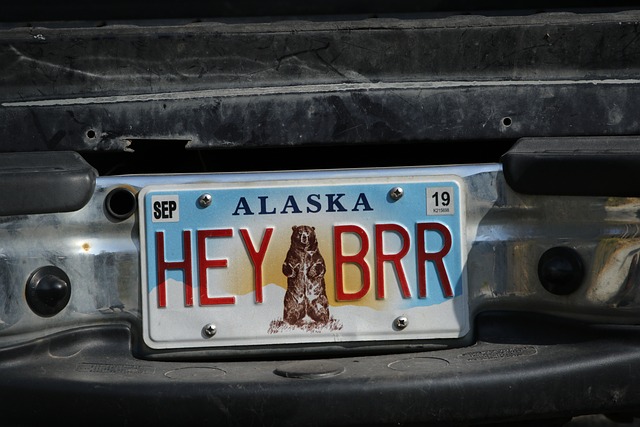Share This Article:

Juneau, AK (WorkersCompensation.com) -- It would make sense that if you hired your friend to do some work around the house for you, even if you paid them, it probably wouldn't trigger workers' compensation coverage.
However, as was the case in Amos v. Tidwell, No. 2-18626 (Alaska 07/26/24), the so-called "buddy exception" doesn't necessarily apply if you hire your friend to help you complete work for a different friend.
What Happened in the Amos Case?
A worker fell from the roof of a shop building that he was helping a builder build. The builder promised to pay the worker for his work. The builder asked the worker to help him out with the job, which was on the homestead property of the builder's friends.
The worker filed a workers' compensation claim against the builder and the Alaska Workers' Compensation Benefits Guaranty Fund for his injuries. The builder asked the Alaska Workers' Compensation Board to dismiss the claim, alleging that he had not hired the worker but brought him on as a friend to help out. The board decided that the worker had an employment contract with the builder, but it determined that the builder was not an "employer" under the Alaska Workers' Compensation Act.
According to the board, employment based friendship fell within the consumptive uses exemption from the act's coverage. The Alaska Workers' Compensation Appeals commission affirmed the board's decision, agreeing that the worker's work fell within a history or custom of friends helping each other.
The worker appealed to Alaska's Supreme Court.
The Law that Applied and What the Court Said
In Nickels v. Napolilli, 29 P.3d 242 (Alaska 2001), the Alaska Supreme Court held that, under Alaska's statutory workers' compensation scheme, the legislature has the duty to define exempt categories of employees, and so the commission erred in this case when it created a "buddy" exemption from coverage.
"We conclude that there was an employment relationship" between the worker and the builder, the court explained.
Productive vs. Consumptive Uses of Labor
So, if the "buddy exemption" didn't apply, could the builder defend on the grounds that his use of the worker's services was consumptive rather than productive in nature? Not in this case.
In Kroll v. Reeser, 655 P. 2d 753 (Alaska 1982), the Alaska Supreme Court explained that there is an exemption for consumer-employers who hire workers to perform tasks at or related to their personal residences. The theory applies to "householders" since, even if they have a business with compensation, they are not producers of goods or services when they employ someone at their homes for their personal benefit. Examples include:
+ Hiring a young neighbor to mow the lawn.
+ Retaining a practical nurse to stay with a sick child.
The issue in this case involved whether the exemption applied because the builder was friends with the property owners.
According to the court, the relationship between the builder and the property owners wasn't the one at question. Instead, it was the one between the worker and the builder that mattered.
"A householder who hires someone to shovel his own driveway may appropriately argue that he is not an 'employer' as defined in the Act because he himself has hired that person and is using that person's labor as a consumer, to maintain his home," the court wrote. "But a snow-removal contractor is not exempt from the Act when hires someone to shovel other people's driveways."
Thus, the productive/consumption distinction did not apply to the builder's activities on the shop because the project "was not a project personal to him, built on his property," the court explained.
The court also pointed out that the commission's deciding that the worker was a "part-time" and "transient" worker under Alaska law was a mistake because the board didn't address the question in its ruling, meaning that it wasn't up for consideration when the case made its way to the commission.
Workers' Comp 101: Those who've read the full case of the Amos decision on Simply Research, know that in Alaska, "part-time help" means a person who on an intermittent, irregular, noncontinuous basis performs work that is either not an integral part of the regular business of the beneficiary of the work or that is not the regular business, profession, or occupation of the worker, while "transient help" means a person who does not have a permanent work residence and who performs work that is not an integral part of the regular business of the beneficiary of the work.
Thus, the Alaska Supreme Court reversed and remanded the commission's decision for further proceedings.
california case management case management focus claims compensability compliance courts covid do you know the rule emotions exclusive remedy florida FMLA fraud glossary check health care Healthcare hr homeroom insurance insurers iowa leadership medical NCCI new jersey new york ohio osha pennsylvania roadmap Safety state info technology texas violence WDYT west virginia what do you think women's history women's history month workcompcollege workers' comp 101 workers' recovery Workplace Safety Workplace Violence
Read Also
About The Author
About The Author
-
Frank Ferreri
Frank Ferreri, M.A., J.D. covers workers' compensation legal issues. He has published books, articles, and other material on multiple areas of employment, insurance, and disability law. Frank received his master's degree from the University of South Florida and juris doctor from the University of Florida Levin College of Law. Frank encourages everyone to consider helping out the Kind Souls Foundation and Kids' Chance of America.
More by This Author
Read More
- Apr 14, 2025
- Frank Ferreri
- Apr 14, 2025
- Claire Muselman
- Apr 14, 2025
- Chris Parker
- Apr 13, 2025
- Claire Muselman
- Apr 13, 2025
- Chris Parker
- Apr 13, 2025
- Liz Carey




